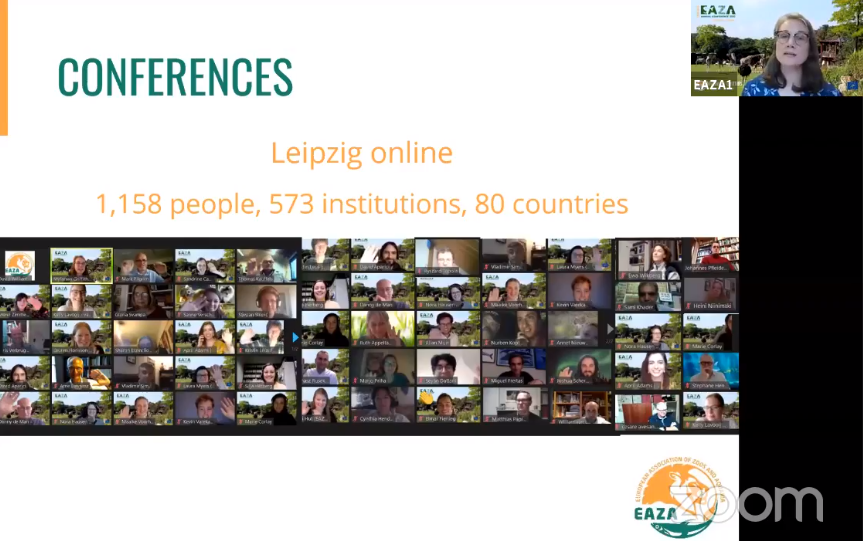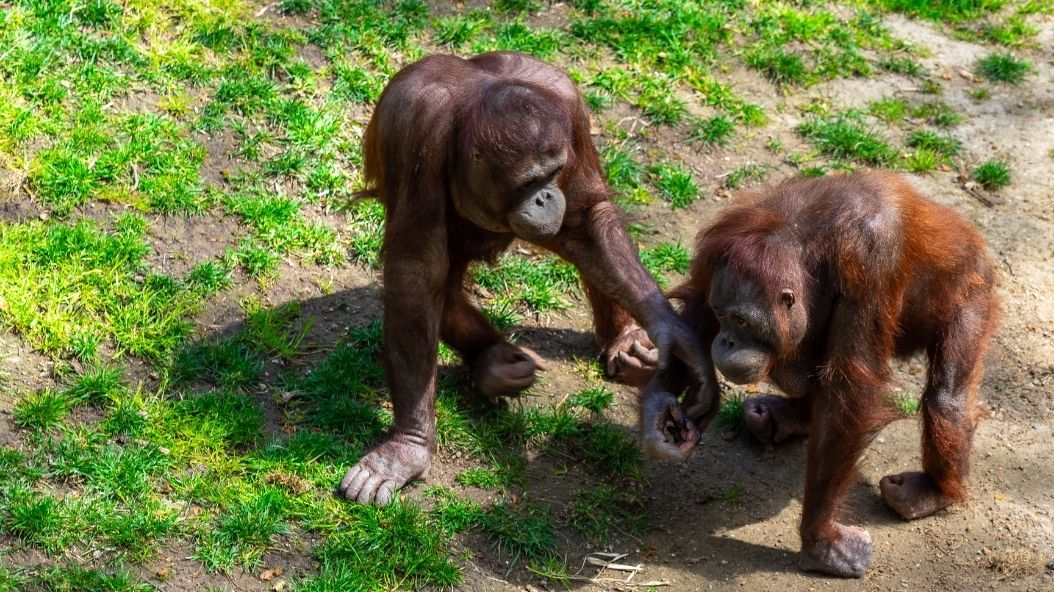Every year, at the start of autumn, members of the European Association of Zoos and Aquaria (EAZA) meet up in a European city to hold their annual conference. For five days the chosen host city becomes a hive of biologists, vets and other professionals from the world of zoos coming to and fro to attend as many sessions as possible of a veritable marathon of knowledge applied to biodiversity conservation.
The COVID-19 pandemic, however, forced the organisers of this 2020 edition to adopt an online format, a virtual get-together that proved to be a complete success, both in terms of participation and appraisal of the chosen programme. Between 28 September and 2 October, 1,158 participants from 537 institutions and 80 countries took part in meetings, presentations, debates and workshops on extremely interesting and topical issues.
Notable issues dealt with this year included the following:
- COVID-19 and its effects: from the development of this and other pandemics to the opportunity it represents for raising awareness of biodiversity loss.
- The commitment of zoos to the new EU Biodiversity strategy for 2030 which, after the 2020 strategy, aims to guide Europe towards ecological recovery over the coming decade.
- A necessary combination of work within and outside habitats (in situ and ex situ) enabling progress to be made in the conservation of many endangered species.
- Ex situ conservation in zoos, which is helping to preserve European biodiversity.
- Animal well-being and the tools for its assessment, as well as the ability to improve every aspect that influences living conditions for animals in zoos, from the design of facilities to the training of professionals.
- Work carried out by zoo educators with local communities, which is key in projects in natural habitats.
- The contributions zoos make to research. Zoos contribute knowledge on species through their work managing their populations, and in collaboration with universities, which is essential for helping endangered wild populations.
Barcelona Zoo has been a member of EAZA since its foundation and its team has been taking part, year after year, in this crucial event involving Europe’s zoos. At this year’s edition Dr Mª Teresa Abelló, a primate conservationist at the Zoo and the President of EAZA’s Ape Taxon Advisory Group, delivered a joint presentation with Zurich Zoo's Claudia Rudolf von Rohr, an animal-well-being coordinator in this group, on good-practice guides for improving the well-being of the great apes, during a session dedicated to successful experiences.
For his part, Dr Hugo Fernández, the head of the Veterinary Service and the President of the European Association of Zoo and Wildlife Veterinarians (EAZWV), took part in the meeting held by the Veterinary Committee co-managing the two associations where information was provided on two landmarks achieved thanks to joint work: the commitment from the World Organisation for Animal Health (OIE) to re-assessing the current classification of hepatitis B in anthropoids as zoonosis, a choice that is not based on any evidence and which has been restricting the various attempts to conserve and re-introduce species, especially gibbons; and the start of a good-practice guide aimed at enabling an appropriate application of the new European animal health legislation coming into force in April 2021, and which will determine what the necessary animal transfers will have to be like to ensure the smooth running of EAZA's Endangered Species Programmes (EEPs).

EAZA brings together every European zoo that is committed to conservation and which maintains optimal standards in their management and facilities: around 400 centres networking for wildlife and nature. The International Union for Conservation of Nature (IUCN) considers these to be key actors for preserving species and raising awareness among citizens.
If you are interested in following some of the conference's open sessions, you can access videos from the EAZA website or its YouTube channel



